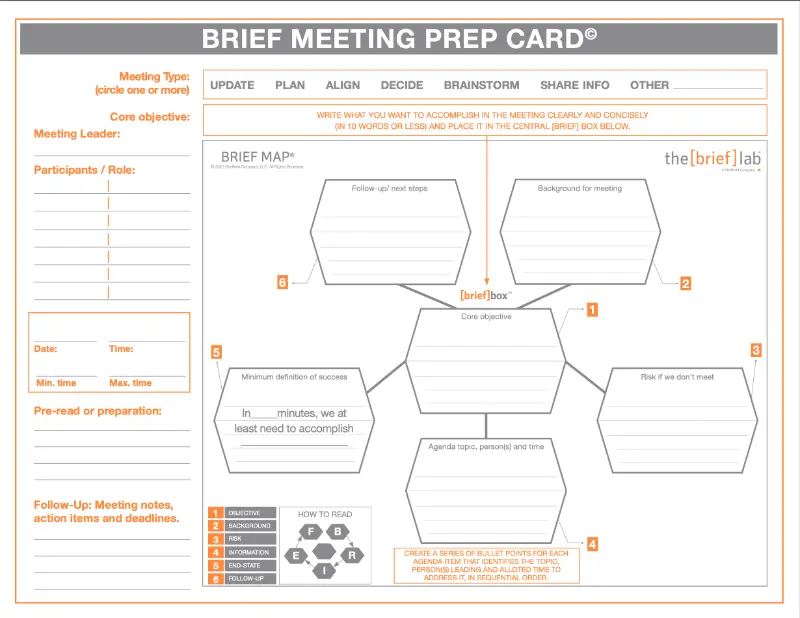Focus on What Matters Most

As the founder of The BRIEF Lab and the author of Noise: Living and Leading When Nobody Can Focus and BRIEF: Make a Bigger Impact by Saying Less I specialize in helping people become deliberate, clear, concise communicators. This blog is based upon one of my recent podcast episodes (“Just Saying” episode 330) about the importance of learning to focus on what matters, and why we often get distracted by things that don’t. A relentless focus on “the important” is a game-changer that will improve your productivity and effectiveness at work and in life.
The Challenge of Staying Focused
In a world filled with constant distractions, it can be challenging to stay focused on what matters. At work and at home, numerous things compete for our attention, making it difficult to communicate effectively and achieve our goals.
This is one of the reasons I wrote “Noise.” There’s so much noise around us that it consumes us. If you haven’t read it, I highly recommend it. It will give you a sense of how challenging it is to think, communicate, and work in an environment with so many competing priorities, many of which are useless.
I also wrote “BRIEF” to provide the skillset needed to cut through the clutter. There’s a lot of clutter, so if you listen to past episodes of my podcast, you’ll find various strategies, approaches, and mindsets to help you live and thrive in this challenging environment.
Focus on What Matters: Insights From the C-Level
While preparing for this topic, I remembered a conversation I had several years ago with Marlena Peleo-Lazar, the former Chief Creative Officer of McDonald’s, who launched the famous “I’m Lovin’ It” campaign. During our lunch, she shared two insights that have always stuck with me:
- Indicators of a Bad Idea: An early indicator of a bad idea is that it takes a long time to explain. While this is not guaranteed, many bad ideas just cannot be explained briefly. Conversely, a brief explanation can be an early indicator of a good idea—short, sweet, and clear.
- Importance of Focus in Meetings: With so many things to talk about, it’s crucial to focus on what really matters. This begs the question: Do we even know what the most important thing is?
Clarity About What Matters
I’m currently re-reading Deep Work by Cal Newport, which I highly recommend. Newport says, “Clarity about what matters provides clarity about what doesn’t.”
If I know what matters, I also know what doesn’t. If something doesn’t matter, we need to stop talking about it and thinking about it.
In “Noise,” I outline strategies to lower the noise, such as saying no to unimportant things. This ability to mute distractions allows us to be clear on what matters and not get bogged down by what doesn’t.
Focus on Essential Information
At the Brief Lab, we teach trimming, which involves distinguishing between level one, level two, and level three details:
- Level One: Essential information, the shortest explanation, e.g. a one-pager.
- Level Two: Mid-level detail.
- Level Three: Supporting details.
If you don’t acknowledge these levels, everything can seem equally important, which is never the case.
Remember what Marlena said: Talk about the most important thing. If you don’t know what that is, take time to think about it. Make some quiet time to consider the most important thing before your next meeting, email, message, or text.
Practical Exercises
To help you focus on what matters, try this exercise:
- Identify Your Roles: List the different roles you play (e.g., project manager, parent, friend).
- Define the Most Important Thing: For each role, write down the most important thing you need to do today.
- Explain Why: Explain why this is the most important thing.
Focusing on what matters requires deliberate effort and the ability to say no to distractions, even good ideas. Be intentional in your communication and take time to identify what truly matters in your various roles. This clarity will help you cut through the noise and be more productive and effective.
How The BRIEF Lab Can Help
The Brief Lab offers courses for organizational leadership teams that want to learn to communicate efficiently and effectively. Professional leaders recognize the value of concise communication as a core skill that sets them apart, and we can help. When you and your team learn to be BRIEF you will:
- Reduce time spent in meetings, briefings and your inbox.
- Make better decisions faster based on clear, consistent information.
- Develop consensus that unifies effort and encourages follow-through.
- Enhance understanding of your mission and message.
- Improve operational efficiency and effectiveness.
- Ensure clarity to reduce confusion and re-work.
Contact us to learn about our offerings; we’ll teach you and your team how to embrace concise communication and develop a culture of brevity.

